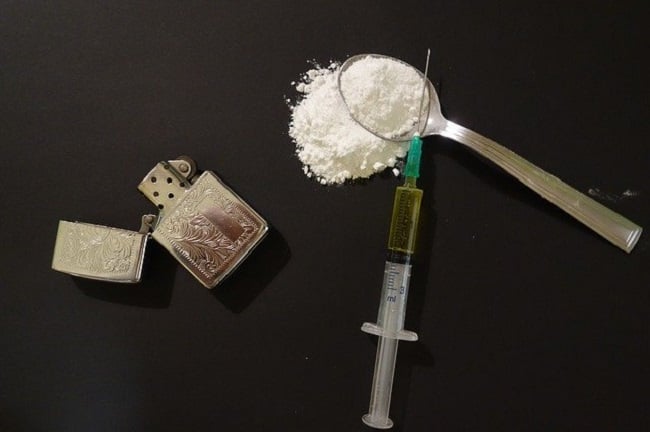CANSFORD LABS
Covid-19 and the UK: the implications for the users of illegal drugs
on Apr 29, 2020
Toilet rolls. Eggs. Handwash. Pasta. Tinned foods. When the Covid-19 pandemic first hit British shores, a panicking public began to stockpile a number of essential items, worried about their ability to get hold of what they needed down the line.
But it’s not just food and household items that are being stockpiled. A CNN article from early April reported that the closure of international borders and cutting off of supply lines as a result of social distancing measures has led to shortages and increased prices of illegal drugs.
This has led to users of illegal drugs stockpiling their substance(s) of choice to get them through weeks of lockdown. Such behaviour, of course, means that overdoses may be on the rise, with users having higher quantities of their chosen substance than normal in easy reach. However, the consequences of this lockdown on users of illegal drugs may have devastating consequences in three further ways.
1. Purity could decrease
In an article for The Guardian, Dr Rachel Britton, Director of Pharmacy at charity We Are With You, spoke of a recent drop in supply of certain substances. However, she says, “while less drugs on the street may seem like a good thing, what replaces them is usually more dangerous. We know the purity of many drugs is decreasing as dealers cut them with different substances to increase their bulk”.
"A decrease in purity could lead to increasing numbers of drug users being hospitalised."
What this means is that many drug users will be unaware of what they are actually taking, making the chance of an overdose more likely. In recent years, studies have found that substances such as Levamisole (which can decrease white blood cell counts), phenacetin (linked with kidney and bladder cancer) and paracetamol (which can cause irreversible organ damage) are all used to cut illegal drugs. With the NHS already under immense strain, a decrease in purity could lead to increasing numbers of drug users being hospitalised.
2. Users could switch to more dangerous alternatives
With supplies of certain substances running low, there is concern that users will turn to other substances in an attempt to induce similar effects.
Senior Policy Analyst at the Transform Drug Policy Foundation, Steve Rolles, believes that a heroin drought is on the horizon. He says, “if the heroin isn’t available they [heroin users] will probably find another route, whether it’s alcohol or inhalants, or benzodiazepines or something else”.

Authorities are already concerned that a reduction in heroin supply could result in users turning instead to fentanyl: a powerful synthetic drug whose production is now taking place in the UK and that is up to 50 times more powerful than morphine. In January this year - before a UK lockdown was even considered - the Advisory Council on the Misuse of Drugs (ACMD) published a report that showed a rise in fentanyl-related deaths from 8 in 2008 to at least 135 in 2017.
3. Unmanaged withdrawal could increase
For some drug users, a requirement to self-isolate, the loss of a job or a lack of ability to access their supplier may result in going “cold turkey”. While this may seem like a positive outcome, the truth is that such an abrupt withdrawal without proper medical management can be incredibly dangerous.
Acute withdrawal symptoms vary from substance to substance, but can include psychological symptoms such as anxiety and depression, as well as physical symptoms such as muscle aches, fever and shortness of breath. Some of these can mimic Covid-19 symptoms, meaning additional people may seek medical help from an already strained NHS.
The European Monitoring Centre for Drugs and Drug Addiction (EMCDDA) has published guidance for drug services during the pandemic, which highlights the importance of ensuring continuity in drug treatment services. However, with the number of people seeking treatment from rehabilitation services likely to increase, are our drug treatment centres equipped to cope?
Understanding the impact of Covid-19
A combination of drug stockpiling and reduced supply caused by Covid-19 could have a devastating impact on the UK’s drug users if not carefully managed. Overdoses, decreases in drug purity, switches to more dangerous substances and the risks involved in acute withdrawal could not only affect the individuals involved, but could also place a huge amount of strain on our already overburdened health services.
"It is crucial that accurate, safe drug testing continues."
Throughout this time, it is vital that clients undergoing regular monitoring continue to be treated in the same way to reduce the risk of such problems occurring. With these people amongst the most vulnerable in our society, it is crucial that accurate, safe drug testing continues to help them through this crisis and out the other side.
Read our latest statement about our services during Covid-19. And to learn more about the reliable, accurate drug tests we offer, get in touch.

Lolita Tsanaclis
Dr. Lolita Tsanaclis, Chief Scientific Officer of Cansford Laboratories Limited, has been developing methods for the analysis of drugs in hair since 1993. She has been involved in drug testing using hair, blood and oral fluid samples for medico-legal and workplace sectors for over three decades. Dr Tsanaclis is published extensively as author and as co-author in highly regarded peer-reviewed publications and scientific presentations.

